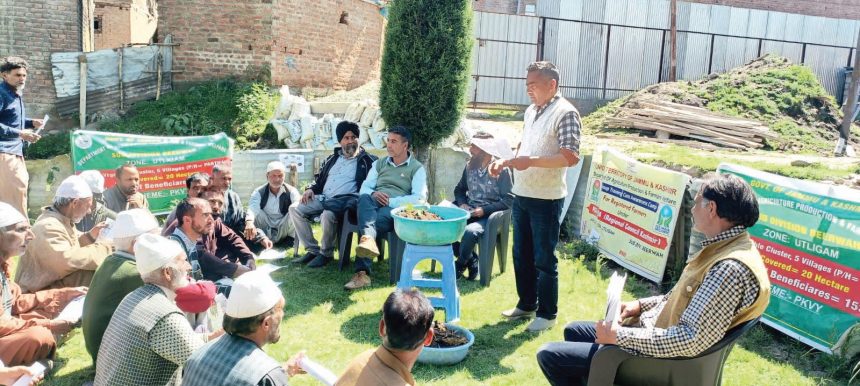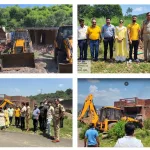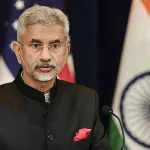Pulwama – In a small village nestled in the Kupwara district of North Kashmir, Hilal Ahmad Sheikh, a passionate farmer from Pangroo, recently posted a video showcasing his bountiful onion crop. The impressive size and health of the bulbs were a visual testament to his success this season, and soon, his social media feed was flooded with praises and queries.
But this story is not just about one man’s harvest. It’s about a growing agricultural transformation taking root across Kashmir, powered not only by modern methods but also by the digital guidance of one man: Dr Tahir Ahmad Tahir.
In his video, Hilal credited his success to adopting scientific practices — avoiding the unscientific trimming of onion leaves, ensuring proper aeration, and exposing the bulbs to sunlight. “Trimming photosynthetic tissues hampers food production in plants,” he explained in the video, urging fellow farmers to till the soil properly and apply DAP fertilizer at appropriate times.
The result? A healthy and high-yielding onion crop that he proudly shared with the world.
Elsewhere, in Hadipora village of Baramulla district, farmer Shabeer Ahmad also uploaded a video showing off his lush garlic crop grown on a modest patch of land.
Shabeer, too, outlined his best practices and expressed satisfaction with the results. Like Hilal, Shabeer was also guided by the same mentor — Dr Tahir Ahmad Tahir.
Dr Tahir, an Agriculture Extension Officer posted in Beerwah, Budgam, is fast becoming a household name among farmers across Jammu and Kashmir. His digital presence, combined with field-level engagement, has made him a trusted figure in the farming community.
Armed with a Ph.D. in Genetics and Plant Breeding and a strong foundation of research experience, Dr Tahir has dedicated himself to bridging the gap between agricultural science and grassroots practice.
“Each day, I receive around 50 phone calls and dozens of messages from farmers across Jammu and Kashmir,” Dr Tahir told Rising Kashmir, “My phone starts buzzing at 6:00 in the morning and continues till late at night. I try to give each farmer at least 10–15 minutes of my time.”
What makes his approach unique is not just his knowledge but his accessibility. Whether it’s guidance on pruning apple trees, disease control in paddy fields, or boosting tomato yield in polyhouse conditions, Dr Tahir is just a call — — away.
His presence on platforms like Facebook, YouTube, and Instagram has brought vital agricultural knowledge to the fingertips of thousands.
“I wasn’t always sure this would work,” he recalls about his early days online, “There were discouraging comments in the beginning, but I focused on the good. Now, lakhs of people follow my videos.”
To date, Dr Tahir has uploaded over 2,500 videos on Facebook and more than 800 on YouTube. His content spans a vast array of topics: garlic and onion cultivation, vertical farming, organic techniques, fertilizer schedules, pest control, and more. Each video is carefully researched, with inputs from subject matter specialists from SKUAST-Kashmir, the Department of Agriculture, and field experts.
“I belong to a farming family,” Dr Tahir says with pride, “My father retired as a Chief Agriculture Officer. Agriculture is in my blood.” But even with his legacy and credentials, Dr Tahir remains humble. “I never share information without consulting the experts. It’s a collective effort,” he said.
His outreach has won him recognition not only among the farming community but also from the Department of Agriculture Production and Farmers Welfare Kashmir, which has acknowledged his tireless work in creating awareness and spreading accurate, scientific farming practices. Yet, he remains concerned about misinformation.
“Farmers must be careful about where they get their guidance,” he warns, “Don’t take advice from a pesticide dealer or fertilizer seller. One wrong step, and it cannot be undone. Always consult an expert.” Today, from the fields of Baramulla to the polyhouses of Budgam, Dr Tahir’s influence is evident.
Farmers like Hilal and Shabeer are thriving, not just with better crops but with renewed confidence in their knowledge and practices. The seeds of awareness sown by Dr Tahir are now growing into a movement — one that promises to make Kashmiri agriculture more resilient, informed, and productive.








